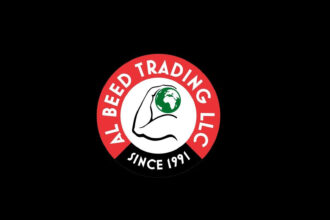The United Arab Emirates have become one of the most friendly countries with the world’s taxes, which makes it highly competitive in the global market. However, nowhere has this leg more equipment than the financial sector, since the EAU now house numerous Fintech high profile companies.
The business climate in the country has made it incredible convenient for brokerage companies and commercial fintechs online to establish their operations in the EAU. Access to a highly qualified workforce around the world makes it even more convenient for colleagues to be domiciled in the EAU, particularly in Dubai free zones, and take advantage of favorable regulatory and fiscal regimes.
There are several reasons why the EAU have become one of the most attractive destinations for Fintech companies and how the country takes advantage of this position to compete in the global market, which we will discuss in more detail below.
Fintech regulations at the EAU
Although the EAU are generally consulted as a friendly business for business, the few regulations that exist strictly apply, which guarantees a fair field of play for hundreds of companies involved in stock brokerage, asset management and investment services.
Multiple regulatory agencies govern the requirements of financial licenses and regulatory in the EAU, which are different in terms of the areas of the financial services sector that govern, as well as the free economic zone under its jurisdiction.
Dubai Financial Services Authority
The Dubai Financial Services Authority is an independent regulator of the financial services that exposes the fulfillment of companies in a wide range of financial services, including banking, insurance, value trade, asset management, etc.
The DFSA issues licenses, supervises financial services companies and imposes sanctions for misconduct within the DIFC. The regulatory body is known for its proactive approach to the Fintech sector and consumer protection to align ITS with the best global practices.
The accounts, KYC and AML requirements, which operate under a valid DFSA license, and prohibitions in the privileged information trade, are all common requirements for companies that deal with values within the DIFC.
Authority of Basic Securities and Products (SCA)
The Securities and Public Authority, or SCA, has the task of supervising the license and regulation of the Securities and Capital Commerce markets in the EAU. This also includes online trade platforms, such as actions of shares and Forex.
The two main approaches of the SCA are:
- Regulation of virtual assets: rigor the operations of virtual asset services (VASPS) service providers, including license requirements for both equanges and custodians
- Collaboration with Vara: The SCA works together with the regulatory authority of Virtual Assets (VARA) to establish a unified regulatory framework for virtual assets in the EAU in the EAUs
ABU Dhabi Global Market (ADGM) – Financial Services Regulatory Authority (FSRA)
FSRA OVERE FINANCIAL SERVICE COMPANIES within the Global Market Zone of Abu Dhabi, which includes:
- Orientation on the regulatory framework for private financing platforms: This orientation regulates crowdfunding activities, establishing requirements for the adaptation of capital, risk analysis and protection of investors
- Tokens consultation in 2024 referenced by Fiat, the FSRA issued a consultation document that proposes a regulatory framework for tokens referenced by Fiat, with the aim of integrating the stable into the financial system
Taxes in the EAU
While regulations in the EAU are based on international best practices, the country’s low taxes are much more attractive to both merchants and investors, as well as financial service providers.
The EAU fiscal system is well structured and aligned with international standards, such as the Minimum Corporate Tax Agreement, which guarantees international cooperation with respect to multinational corporations taxes.
Historically, most companies in the EAU operated without paying the corporate income tax, with the exception of oil and gas companies and foreign banks, which were taxed under special regulations.
However, as part of their commitment to the Base Erosion initiatives and OECD Earning (Beps) and to improve their global competitiveness, the EAU introduced a Federal Income Tax, which arises in full effect on June 1, 2023.
Under the new tax regime:
- A 9% corporate income tax is applied to the imponible Aed 375,000
- Income below this threshold remain tax free to support small and medium enterprises (SME)
- Free zone entities can continuously benefit from tax rates of 0%, provide certain substance requirements and do not carry out businesses with continental EAUs directly
As we have already mentioned, the EAU have introduced a minimum 15% tax in large multinational companies with excess revenues or 750 million euros per year.
There are no tax retention taxes, interest or royalties, and there is no capital profits tax (unless it derives from a commercial activity that falls under the corporate tax regime).
Such an approach to corporate taxation means that the uae remote competitive on the global stage, With Most Corporations, including those enrages in facilitating online trading, Having to Pay Only 9% in Corporate Taxies Globy Lower Than Moster Than Moster Than Than Moster Than Moster Than Moster Than Moster than Moster Than Moster Than Moster Than Moster Than Moster than Moster Than Mostery Than than Mostery than Mostery than Mostery than Mostery Than Mostery than Mostery Than Mostery Than Mostery Than Mostery Than Mostery than Mostery than Mostery than Mostery than Mostery.
Furthermore, The Uae is an international Lifestyle Hub and Millions of Expats from All Over The World Have Primary or Secondary Residences In Dubai, Which for a Thriving Client Client Base Or Individuals Drab in Active Trading and Investive Tea Is Veryers Attractage for Brokerage For Brokerage For Brokege for brookerage for brookerage for brookerage for brookerage for brokerage for brookerage for brookerage for broken for brookerage for the position of brokerage EAU as one of the leaders in terms of Fintech innovation and favorable regulatory environment.
Conclusion
The United Arab Emirates are one of the most vibrant financial centers in the world, which is driven by their approach to the common seams of regulation, low taxes and a large group of international talents that reside mainly in Dubai and Abu Dhabi.
The friendly business climate, compliance with international best practices and a business and leisure combination make EAU an attractive destination for Fintech companies to establish and offer their services to customers inside and outside the country.
The new corporate tax regime, which imposes a 9% corporate income tax in most corporations in the EAU, as well as the OECD minimum corporate benefit tax initiative, ensures that EAU can raise funds in the country and services at the counter and services in the counter and services in the counter and services and services in the best agreements.








